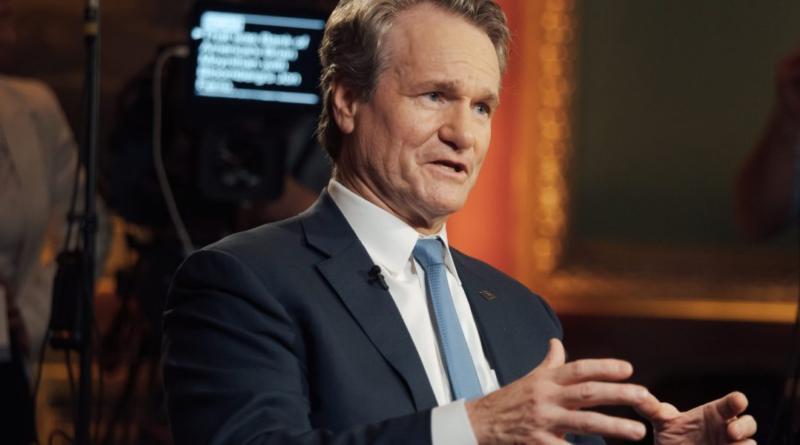Bank of America CEO Brian Moynihan says both consumers and businesses are ‘slowing things down’—in fact, they’re acting like its 2016, a period of ‘very low growth’
Consumers might be squeezed by inflation, but it seems their wallets aren’t tight enough to stop them spending on enjoying a good time. At least, that’s what Brian Moynihan is seeing from the data at Bank of America.
But while shoppers are still splurging on experience spending, they’re consciously pulling back on more day-to-day purchases such as groceries. And the story is the same on the commercial side, said the CEO, where spending is still there but the purchasing is slowing.
Speaking at the AllianceBernstein Strategic Decisions conference in New York this week, Moynihan said the behavior he’s seeing from clients reminds him of the mid-to-late-2010s.
He explained that the money moving through consumer’s accounts is currently around $4 trillion a year, comprising of transactions such as cell payments, debit and credit cards cash out at ATMs and so on. For the year to date, growth in these transactions has been approximately 3.5%.
“That number doesn’t mean a lot unless it has context,” Moynihan added. “In May of ’23 versus May of ’22 it’d probably have been like high single digits, maybe even double digits. So it slowed down coming through the summer of last year and sits at a level which is about where it would be in a low growth, low inflation environment economy—where it was in ’16, ’17, ’18.”
The only problem with that theory is that in 2024 the U.S. doesn’t have low inflation. Instead, it’s sitting stubbornly at 3.4% in April—well above the Fed’s 2% target.
This high inflation is why people may be spending less, as BofA’s data has found, on general purchases, and are instead splurging on experiences.
“The way people are spending money is consistent with what you read about which is it’s on experiences—it’s still driven at the margin by travel, entertainment and things like that,” he continued.
The Swift case
Analysts need not look far for evidence of this phenomenon—just Google Taylor Swift. The singer songwriter has smashed world records with her Eras Tour, which has grossed more than $1 billion, and has become an economic phenomenon in the nations it has visited.
The tour generated $5 billion in consumer spending in the U.S. in just six months, according to data from market insights experts Nomura, and is expected to add even more on its European leg.
The story isn’t the same across the rest of the market, however. Moynihan said: “Other things have moderated—except for insurance payments… It has slowed down. We gotta keep the consumer in the game in the U.S. economy because it’s such a big part of it.”
Moynihan, who has lead BofA since 2010, has warned the Fed before about pushing the consumer too hard and crippling a major driver of the economy.
Consumers are a little more “tender” he added, saying shoppers are now going to three supermarkets instead of two—perhaps hunting for better prices between the competitors.
Commercial concern
Moynihan, a Brown University alumni, said businesses are behaving in similar ways to consumers—still managing to get by but without booming spends.
“They’re basically saying: ‘I’m making money, I’m fine, I’m worried about every possibility you could layout: the wars, the China trade war, elections. But everything’s OK but because it costs me more money to borrow I’m being a little less aggressive’,” Moynihan laid out.
The pairing of consumers and businesses form a huge part of the American economy, Moynihan points out, and their message is the same: “You know what, I’m being careful, slowing things down, still growing, still feel good about my overall business… but I’m not hiring as much, I’m not buying equipment as fast, I’m not making a commitment to software purchases as fast.
“On the other hand it’s not: ‘I’m laying off a lot of people—I trying to manage this business carefully.”
Signs of “stress”—namely a wobble in credit risk ratings—haven’t been observed, Moynihan added, either on the consumer or commercial side.




